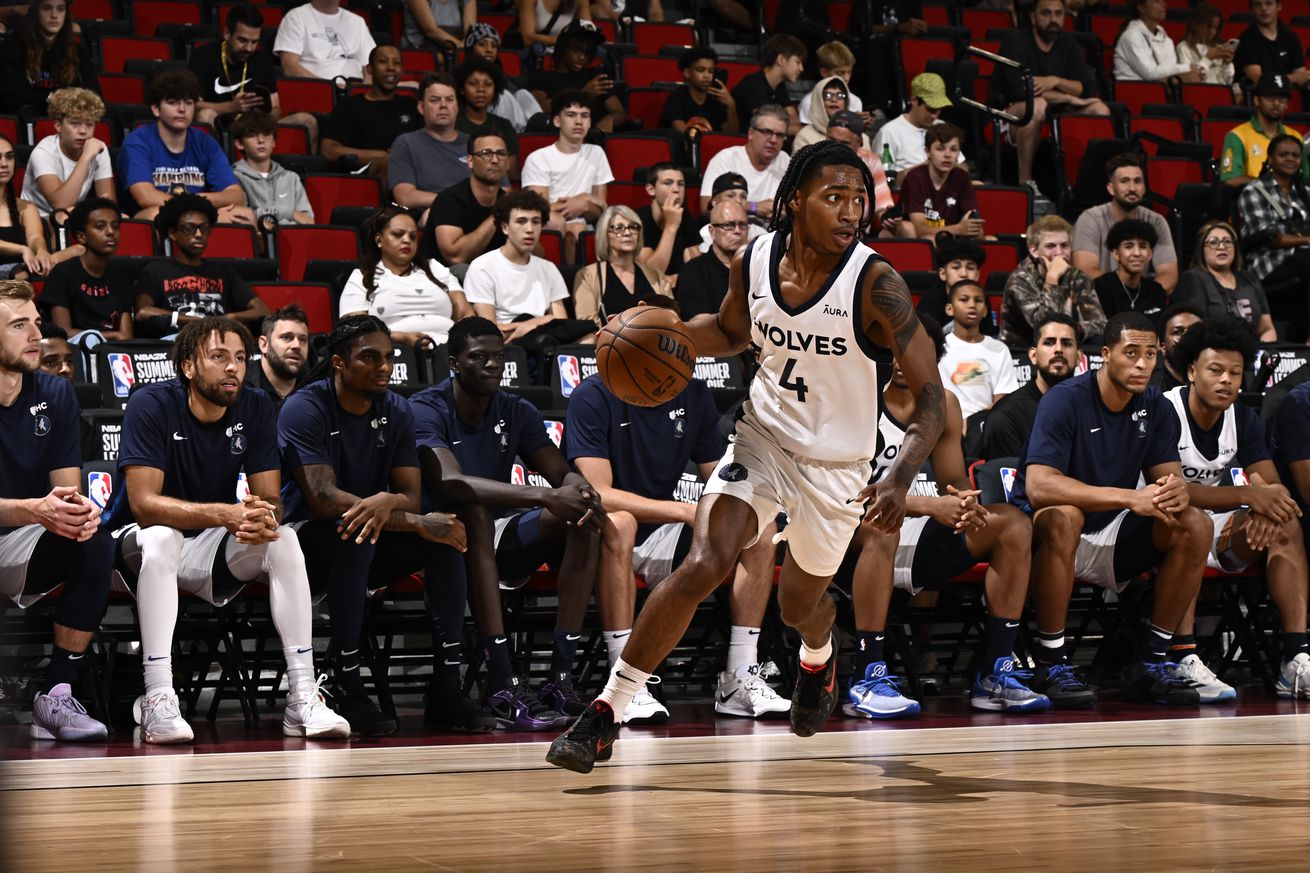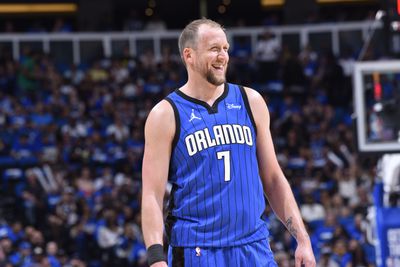
The 2024-25 Wolves are more uniquely prepared than previous with the versatility at the end of the bench.
Every successful season has its common themes that drive winning.
In 2021-22, it was defensive improvement and a young team that would be led by a bounce back All-NBA season from its center.
The past couple seasons, its been the rapid ascension of Anthony Edwards and the team’s assimilation of Rudy Gobert and a top-tier NBA defense around him.
There’s no doubt that the ascension of Edwards will continue, but with the departures of Kyle Anderson, Jordan McLaughlin, and Mike Conley being another year older, facilitation depth is not a point of clarity heading into the season. The Wolves have addressed that in a couple ways on the offseason, and head into the season with more competent bench pieces than they’ve had in an incredibly long time. The question becomes: How do they use them effectively?
This is where Ingles comes in. On top of having natural synergy with Rudy as a lefty, Ingles is very good at prolonging advantages to the basket. His long strides put continual pressure on drop bigs as he patiently waits to time the pass to Rudy pic.twitter.com/MR3R1tAfLE
— (@redfIxvor) August 18, 2024

Photo by Gary Bassing/NBAE via Getty Images
Let’s Break It Down
When it’s all said and done, the Wolves currently have about 11 NBA rotation players, but how many end up getting clock and what their role is remains the question. As things sit today, I think the bench hierarchy will look something like:
6. Naz Reid
7. Nickeil Alexander-Walker
8. Rob Dillingham
T-9. Joe Ingles
T-9. Terrence Shannon Jr.
The above would imply a 10-man rotation, which just isn’t going to happen regularly. It also doesn’t include Luka Garza or Leonard Miller, who are also rotation-caliber players as well, but won’t see consistent time due to the current depth chart. Jaylen Clark is also an interesting piece to factor in this year coming back from injury.
Therein lies my point. When was the last time that the Wolves had this much competitive depth with two of them being rookies that have looked well worthy of healthy NBA minutes after Summer League?
Terrence Shannon Jr vs the Pelicans:
– 25 PTS (9-14 FG, 6-8 FT)
– 3 REB
– 2 BLK
– 71.3% TSTSJ was special on both ends of the floor, showcasing his elite play finishing, transition game & defense. Clear best player on the floor. He’ll be major for MN in rotation!#WolvesBack pic.twitter.com/ZC9fHBSxBw
— mohamed (@mcfxz) July 12, 2024
This is different from previous seasons. While the Shake Milton and Eric Paschall’s were end-of-the-bench signings that raised eyebrows, there was never really much of a level of promise with them. If they played extended minutes, there are probably multiple things going terribly wrong.
I’m not so sure that’s the case this season. Whether it’s Shannon’s ability to collapse a defense, Ingles’ ability to slow things down and be a secondary facilitator, or even Garza spelling the other bigs in the case of foul trouble, I get the sense that the Wolves are in their best position yet in being able to deploy different personnel based on what the game is asking for.
I’m telling you man it might really be this simple pic.twitter.com/joKdAYdc6J
— Jake Paynting (@HowlsAndGrowls_) September 14, 2024
The Dillingham Experience
The Rob Dillingham experience is going to be something where depth shows its usefulness in the most obvious ways right off the bat.
Dillingham is walking into a situation where he has a role on this team as the backup point guard from day one. He’s going to have the ball in his hands a lot, and as we saw in Summer League it can both dazzle and leave you downright scared at times.
Rob Dillingham ends summer league with his best game:
25 points
12 assists
11-18 FG
3-7 3P— Teg (@IQfor3) July 21, 2024
A smaller guard that’s ball-dominant like Dillingham is going to go through his fair share of cold stretches in year one as he acclimates to the NBA game. He won’t be the Kyle Anderson security blanket that Chris Finch so closely relied on when games were in the balance. His shot selection can be spotty as well.
My point in all of this is not to dump on Rob Dillingham, but it’s simply making the point that he can learn at his own pace and the Wolves won’t be forced to solely rely on him as a 25+ minute per night player. When he goes through his inevitable rough stretches, the Wolves can get creative in picking and choosing his spots in games, instead of continuing to throw him out there to struggle out of necessity. It’s a luxury they have now that they didn’t before.
It may not seem like it now, but when March comes around, we always experience just how important roster depth can be with injuries and fatigue are apparent. With a Wolves team expecting to make another deep playoff run, question marks surely exist. The bench unit and ironing out who may be doing what as the season goes on. However, they can’t exist around just how many people on the are capable of immediately stepping in; That’s a pretty solid position to be in.